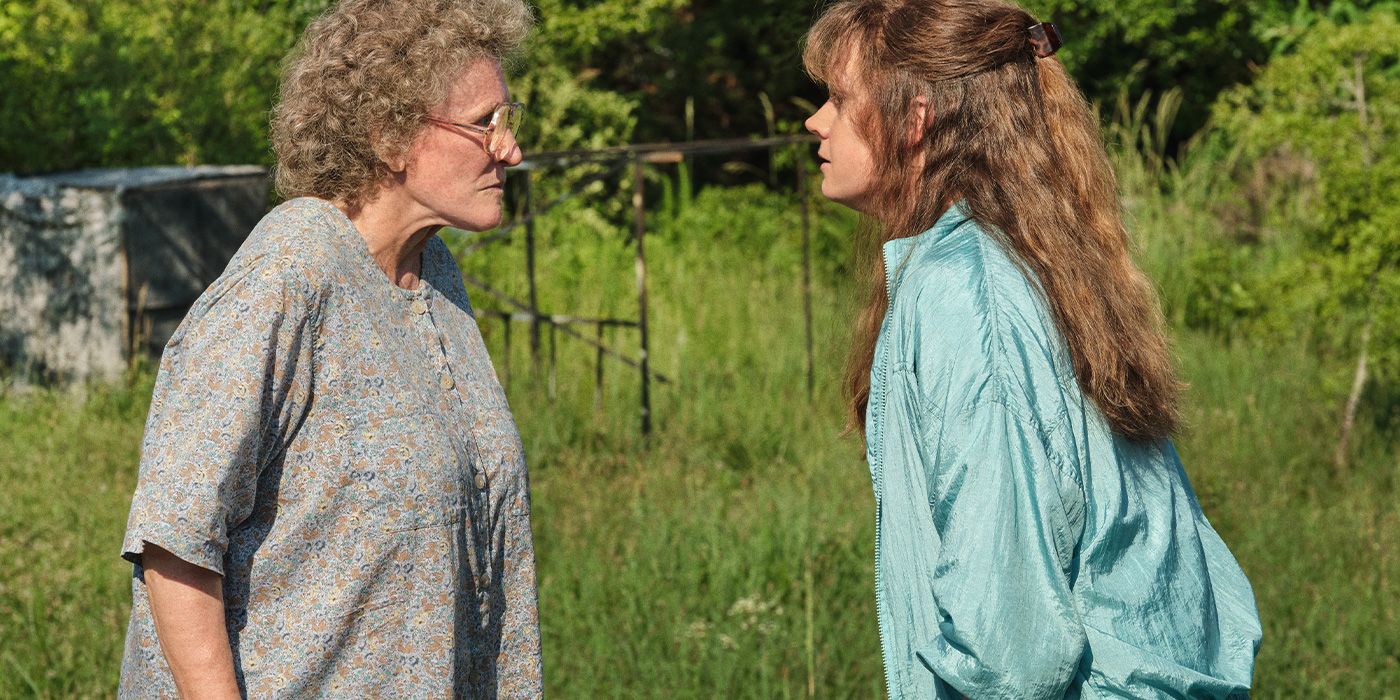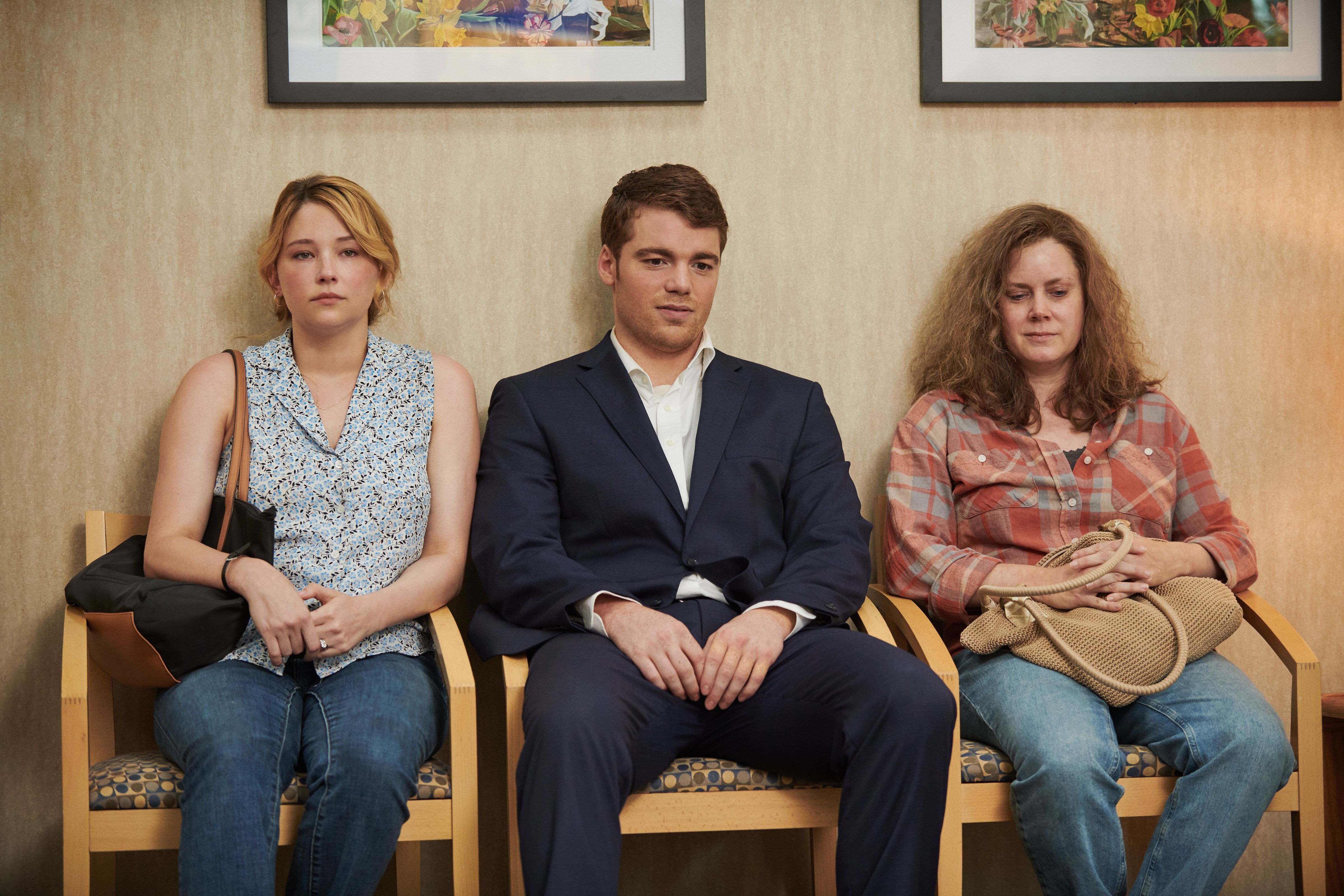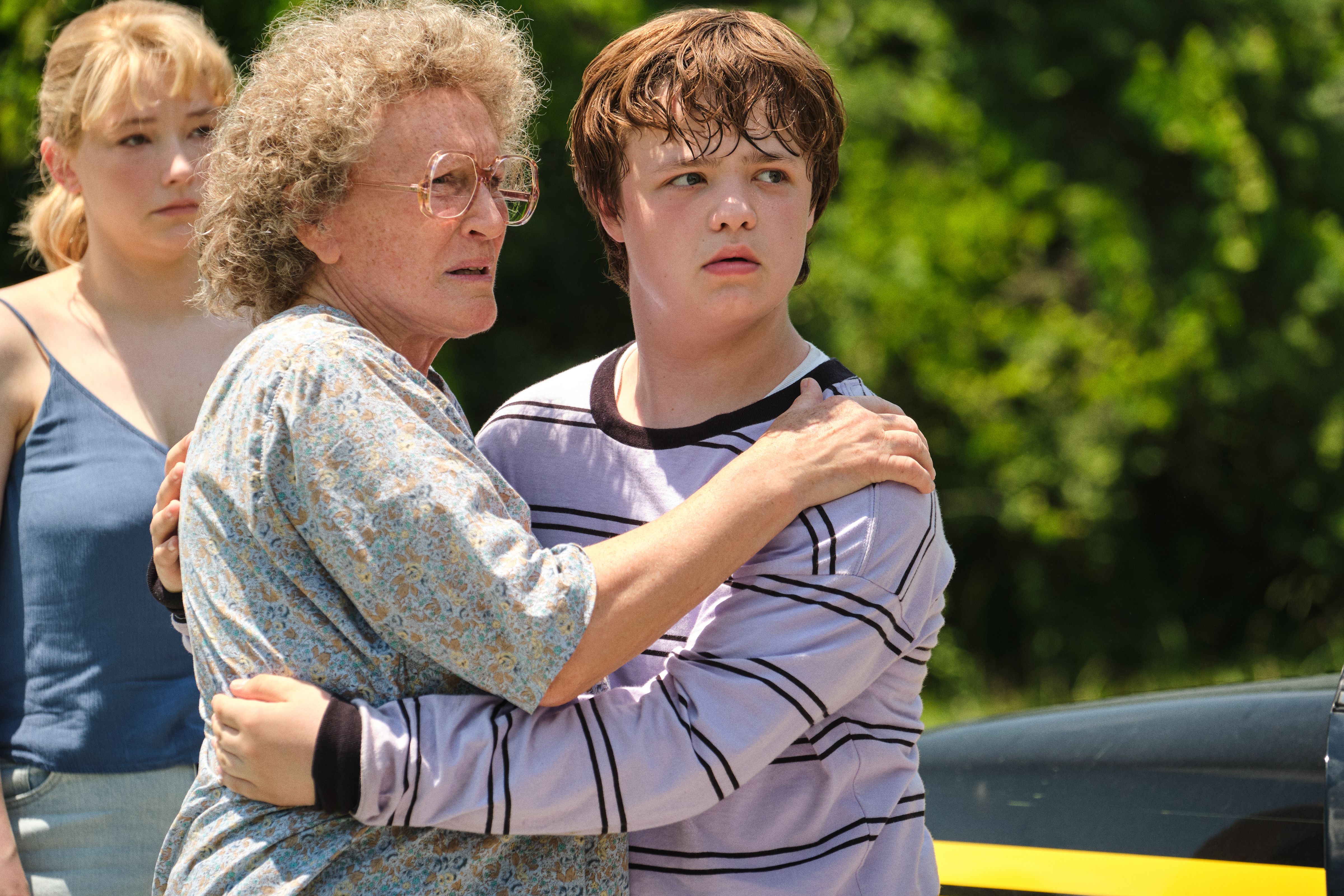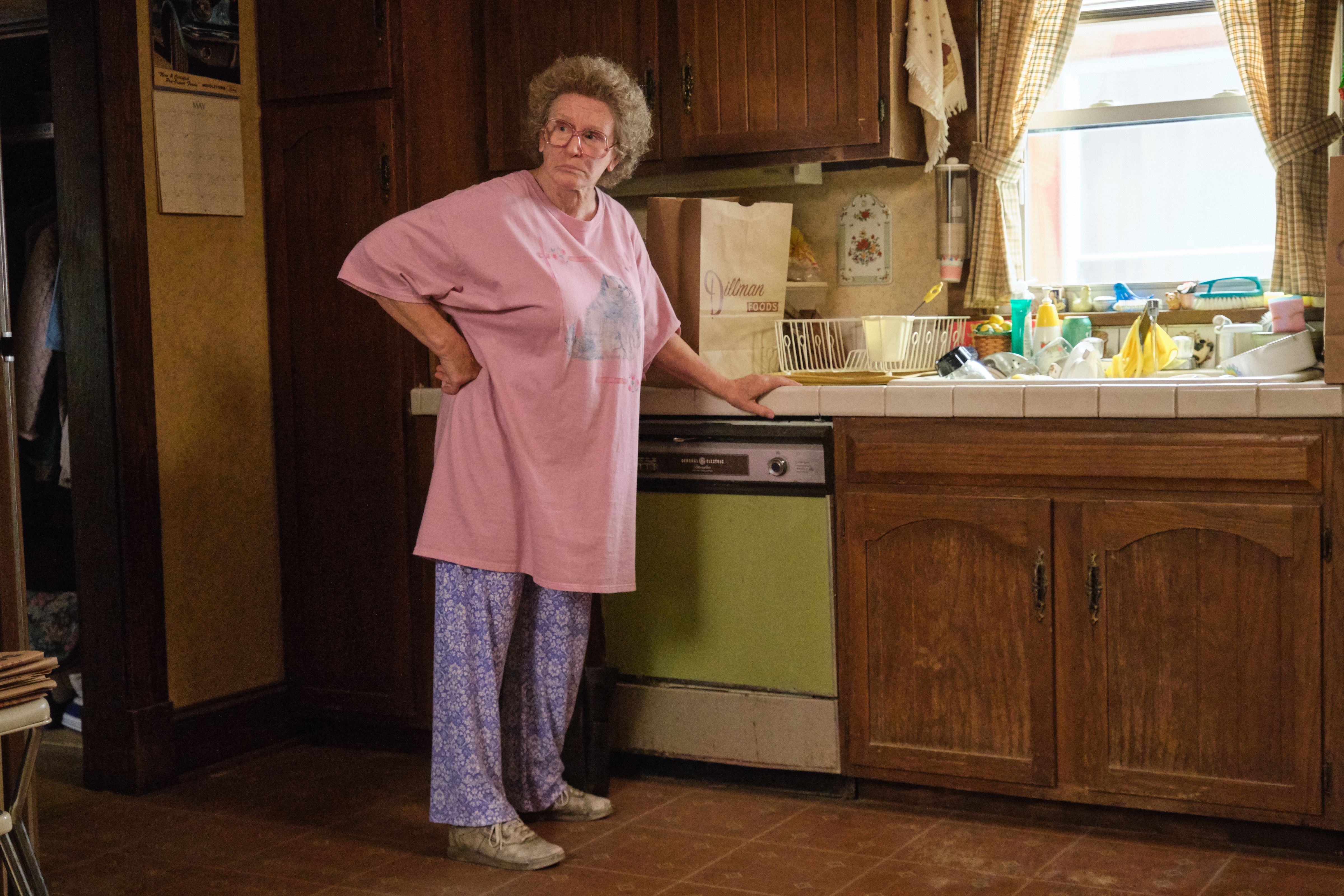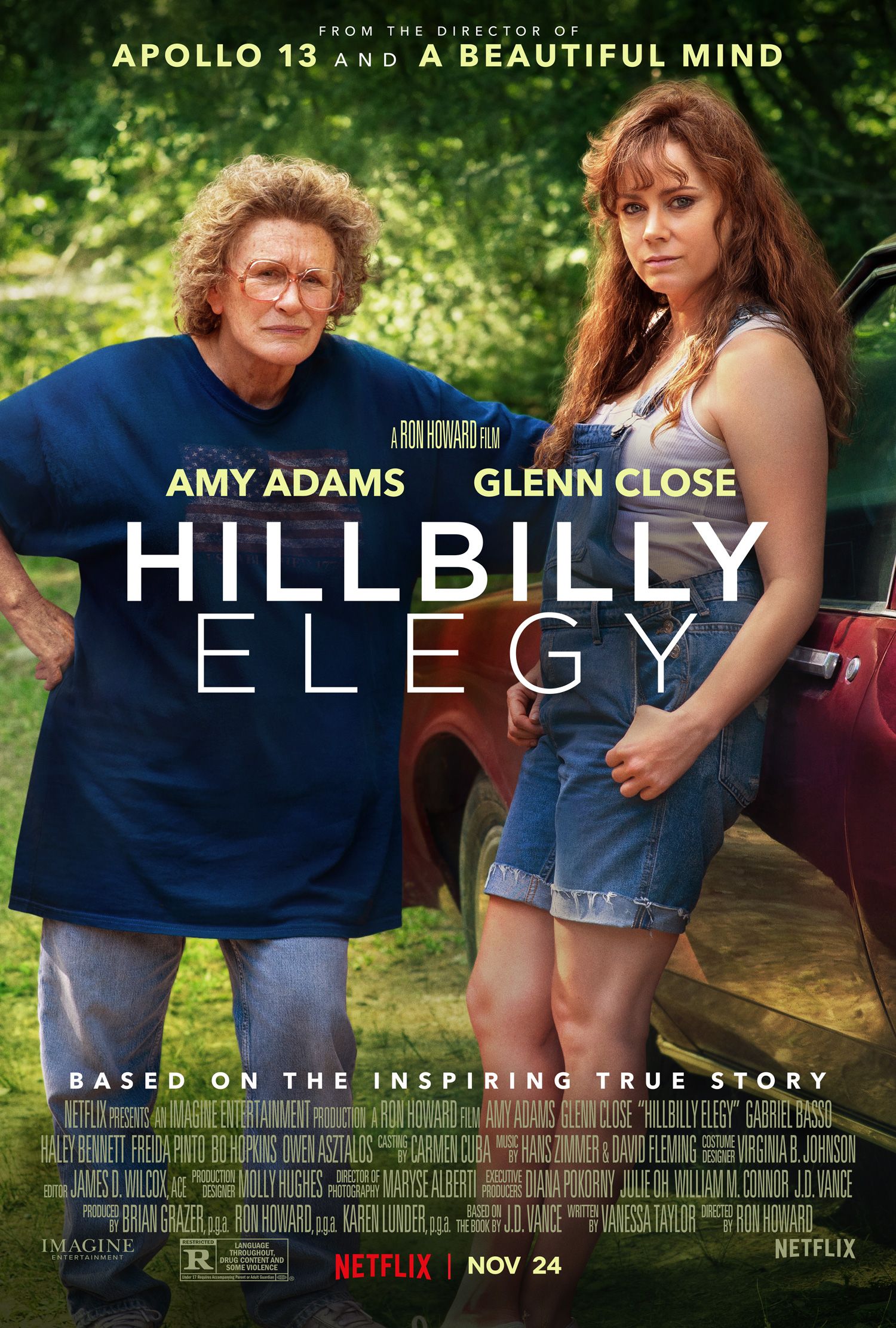J.D. Vance’s memoir Hillbilly Elegy became a talking point among the commentariat following Trump’s election in 2016 to try and explain the Republican nominee’s success in the Rust Belt. The memoir basically highlighted a certain kind of attitude among poor white people who had been “forgotten” and were facing “economic anxiety.” That’s not really rooted in fact (we have actual data that a Trump voter is more likely to be a divorced dad who owns a Kia dealership than a single mom struggling with drug addiction, hence all the stupid boat parades these past year), but it was enough of a narrative to make Vance’s book a hit, and inevitably into a film adaptation that now not only feels out of date, but insulting and condescending to the people it depicts. Director Ron Howard has made what’s arguably the worst film of his career with a banal, trite story of family dysfunction devoid of any nuance or normalcy. It takes two of our greatest actors—Amy Adams and Glenn Close—and saddles them with such cartoonish characters that we’re left questioning the talent of actors we know are talented. Nothing about this movie works, but it does offer some unexpected and unintended laughs.
Vance’s story cuts back between his youth in 1997 and his time in law school in 2011. Vance had a complicated childhood growing up with erratic mother Beverly (Adams), whose behavior ranges from sweet and indulgent to violent and angry at the drop of a hat. She’s a woman filled with resentment at the life she’s had to lead, and then picks up a drug addiction when her father dies (there’s no scene showing that she was close to her dad; we’re just told that she was and that’s supposed to be good enough). This leads young JD (Owen Asztalos) to rely more on his tough-as-nails, chain-smoking grandmother Mamaw (Close). As an adult, JD (Gabriel Basso), on the verge of landing an important internship that will pay his way through law school, must return back to Middletown, Ohio when Beverly ODs on heroin and is hospitalized.
I’m not surprised that Howard, who has basically lived in his entire life in the film and TV industry, has trouble telling a story about people living in the Rust Belt struggling with poverty. I am surprised that Howard, who has been directing movies for over 40 years, could make a film this fucking bad. From its initial scene, we’re told that the happiest summers of JD’s life were in Jackson, Kentucky, but we never return to that place after the prologue. Instead, the pacing of the movie is a series of vignettes where characters are doing something relatively normal and then in less than a few minutes, everything spins wildly out of control. JD and Mamaw will be watching Terminator 2 on the TV, and then suddenly Beverly is out in the street screaming from a suicide attempt and the cops are coming to calm the situation. Almost every scene in Hillbilly Elegy could end with Ron Burgundy going, “Well, that escalated quickly. I mean that really got out of hand.”
This lack of levels and nuance makes Hillbilly Elegy frequently feel exploitative and crass. When you don’t dig down into anything beyond the superficial and big emotional moments, your film plays as unintentionally comic because there’s no empathy for what’s happening. It’s a shortcut to emotion, and that cheap trick frequently renders the film aggressively terrible and laughably bad like when they’re going to the funeral of JD’s grandpa, and as the funeral procession drives down the street, people stop, remove their hats, and put their hands over their hearts like a head-of-state has died even though JD’s grandpa has like two lines of dialogue in the entire movie. “Why are they doing that?” a young JD asks Mamaw. “Because we’re hill people, honey,” she earnestly responds. That literally makes no sense and the film doesn’t even bother to explain it because it just wants the emotional moment of a community coming together without bothering to show the audience what that community might mean.
Hillbilly Elegy also has the Green Book problems where there’s no such thing really as societal ills or systemic problems. Everything is interpersonal, and it’s all about the choices we make. On the one hand, I like the concept of “You are who you choose to be,” (that’s a line from The Iron Giant, one of my favorite movies, but also a movie for children), but it falls apart pretty quickly in the face of broken systems. The subtext running throughout Hillbilly Elegyis that it’s all on the individual simply to have a chance at something better, which takes the onus of improving society at all. Hillbilly Elegy doesn’t really linger on how it’s messed up that health insurance doesn’t cover drug rehabilitation; J.D. just has to load up the rehab costs onto his credit cards because going into debt is what you do when you love your family. What makes Mamaw a good parent to J.D.? She doesn’t mince words and shows him tough love. I get that showing systemic problems is tougher, but Hillbilly Elegy indulges in the childish worldview that what separates the successful and the unsuccessful is work ethic and nothing more.
This simplistic approach spills over to everything else the movie does, and it cripples any hope you might have of caring about these characters. Because the movie is from J.D.’s perspective, we never really learn about Beverly beyond the fact that her childhood was rough too. She comes into a scene, acts like a massive fuckup, and people have to come in and clean up her mess. In a better movie, there’s a story about children who have to carry the burden of parenting their parents, but that’s not Hillbilly Elegy. Amy Adams is an amazing actor who should have at least one or two Oscars by now, but here she’s reduced to caricature and we never get to see Beverly’s humanity. She is a bad mom and an addict, but she also loves her kids when she’s not treating them terribly.
The moments of big emotion that Howard wants to achieve would work if he had simply scaled back his story a bit and found moments of normalcy, but everything is done to highlight poverty, dysfunction, and fragility, and yet he never establishes a baseline of what these lives look like. It’s non-stop drama, and the way the story plays out, it’s like Vance took every crazy episode from his life and played them back-to-back without pausing for a single pleasant memory or character defined beyond a single dimension. Hillbilly Elegy is a movie that professes to care about poverty and family, and quickly shows it’s indifferent towards either.
Rating: F

